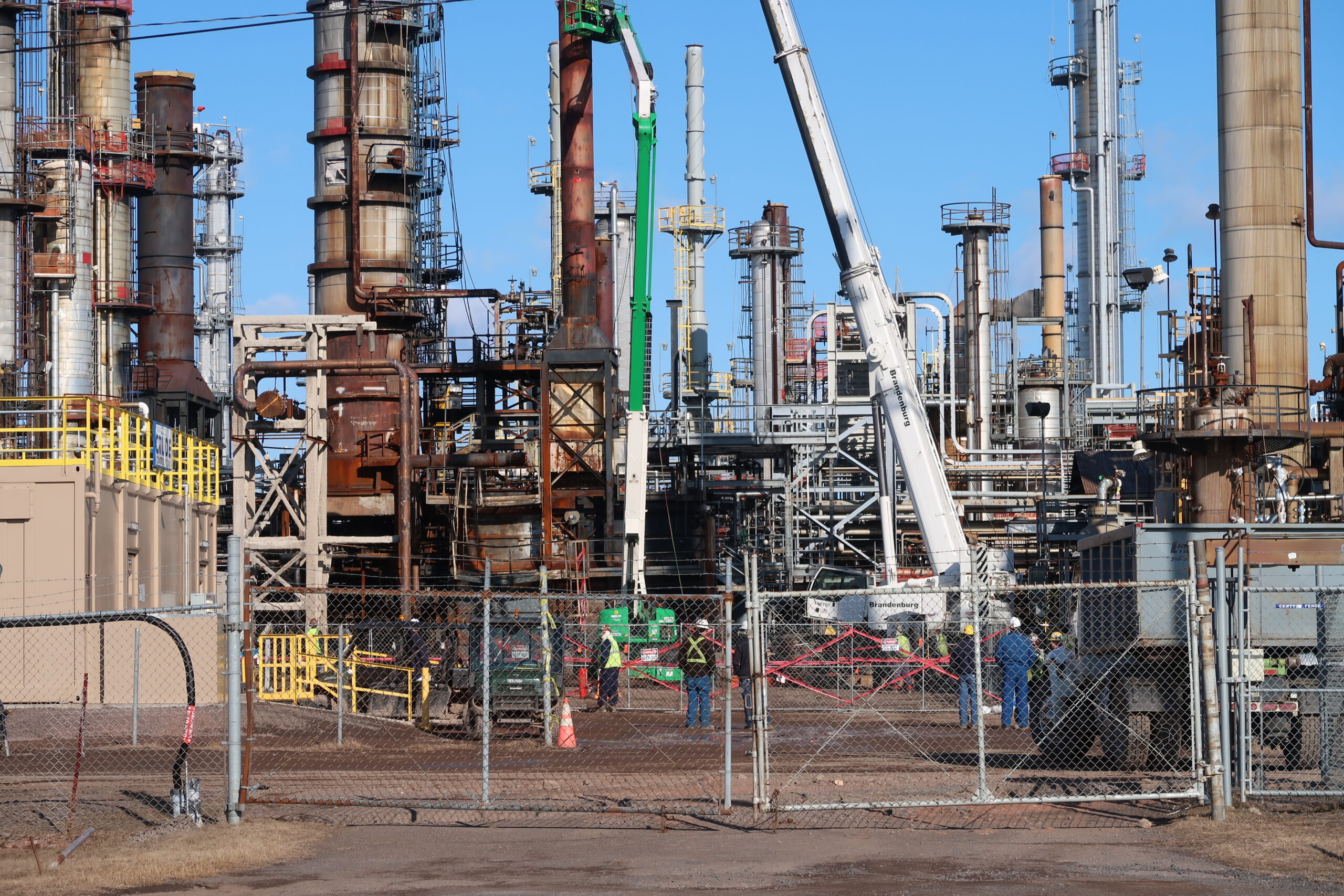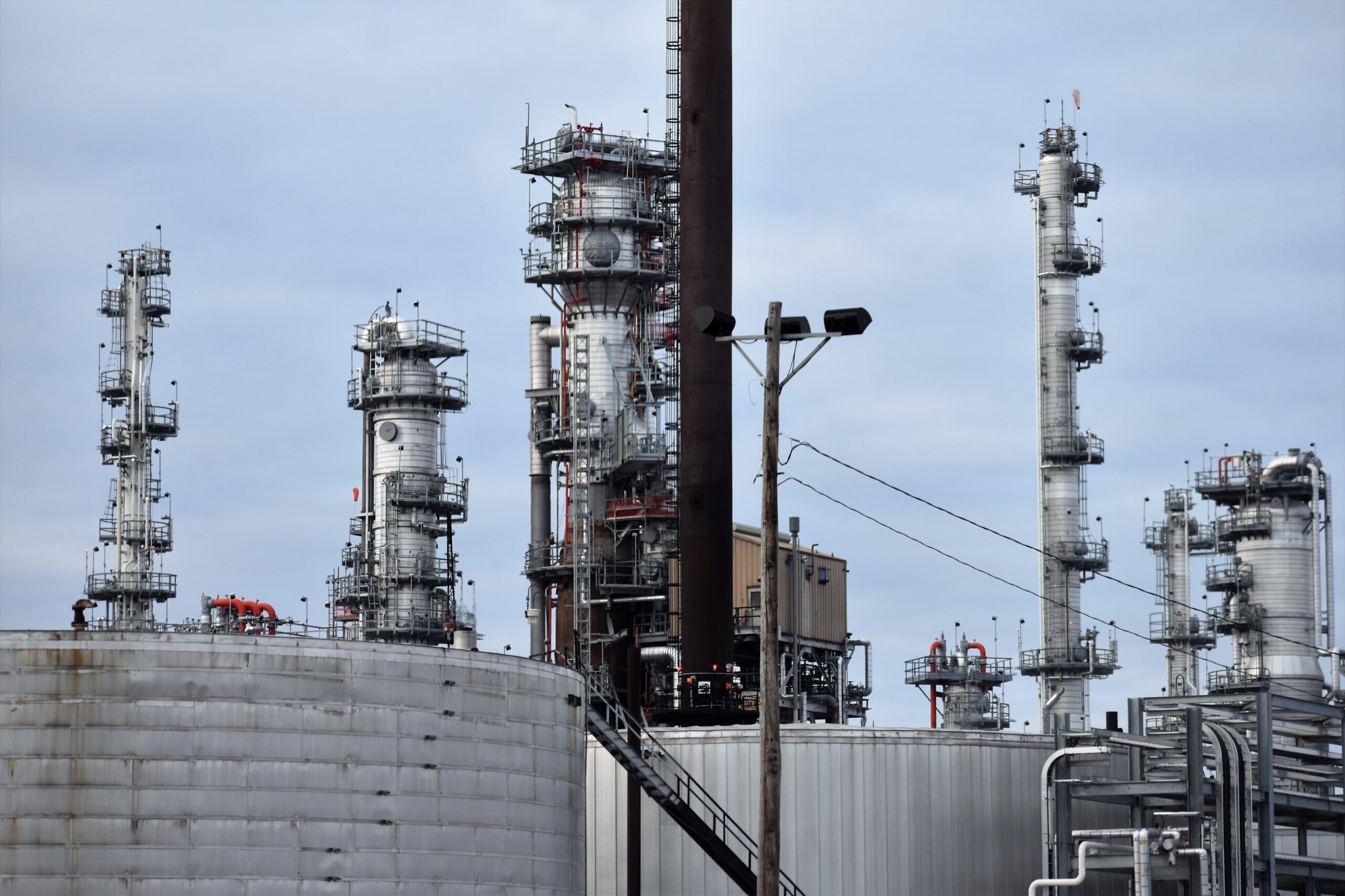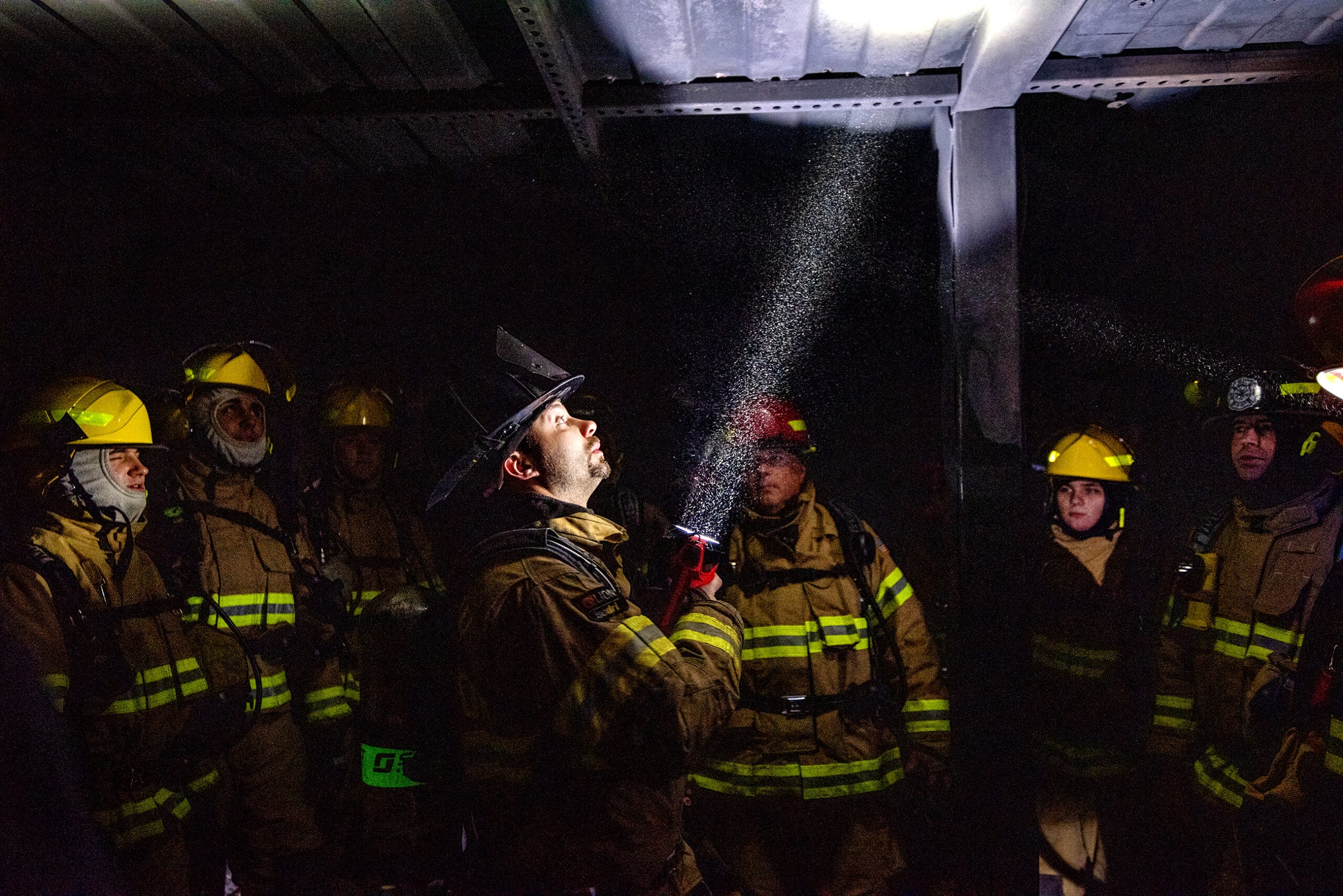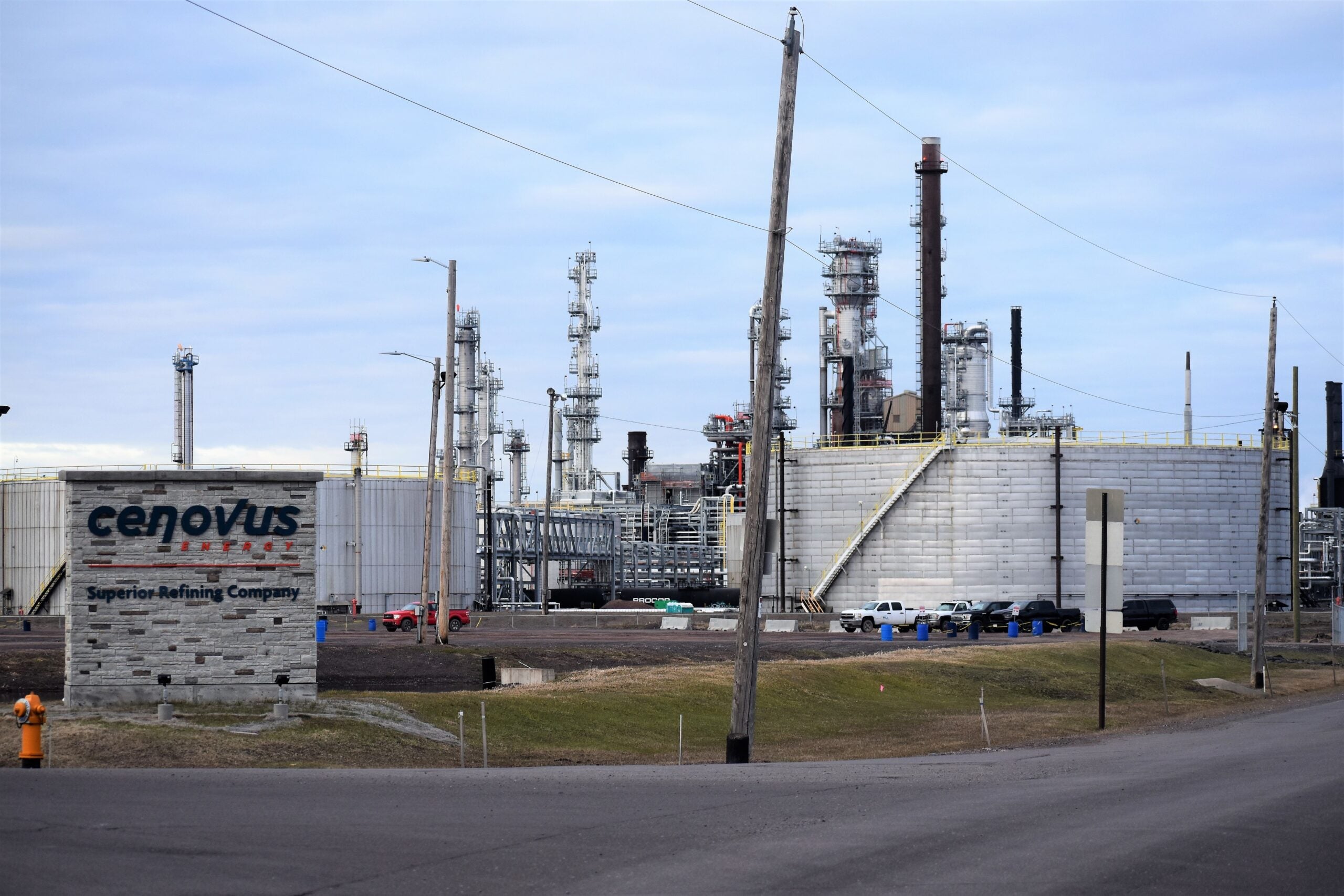After an explosion four years ago, Wisconsin’s only oil refinery in Superior is on track to start up early next year. Meanwhile, the city’s residents may finally know what caused the explosion by the end of this year.
The U.S. Chemical Safety and Hazard Investigation Board has yet to release the final results of its investigation into the explosion at the Superior refinery. In October, the agency released a revised plan to close out its review yet this year.
Canadian firm Cenovus Energy, which acquired Husky Energy in 2021, is wrapping up its $1.2 billion project to rebuild the refinery, according to information provided in its Nov. 2 earnings call. The refinery is set to resume operations over the first three months of 2023.
News with a little more humanity
WPR’s “Wisconsin Today” newsletter keeps you connected to the state you love without feeling overwhelmed. No paywall. No agenda. No corporate filter.
“We brought our first set of crude into the tanks at Superior and have floated the roofs of those tanks and filled up our inventory,” said Keith Chiasson, an executive vice president for Cenovus. “So, we’re imminently getting ready to commission the crude unit and start that up.”
Just a few miles from Lake Superior, the refinery has been out of commission since an explosion occurred in 2018 during a routine turnaround or break in production for maintenance. The blast and subsequent fires injured three dozen people and prompted a temporary evacuation for many of the city’s 27,000 residents.
Immediately after the explosion, authorities urged people to leave their homes due to the smoke and fears that a tank containing the highly toxic chemical hydrogen fluoride may be compromised. Firefighters with the city and refinery were able to extinguish the blaze, and no release occurred. Even so, federal labor regulators say the blast could have been prevented if the refinery had maintained critical equipment that likely caused the explosion.
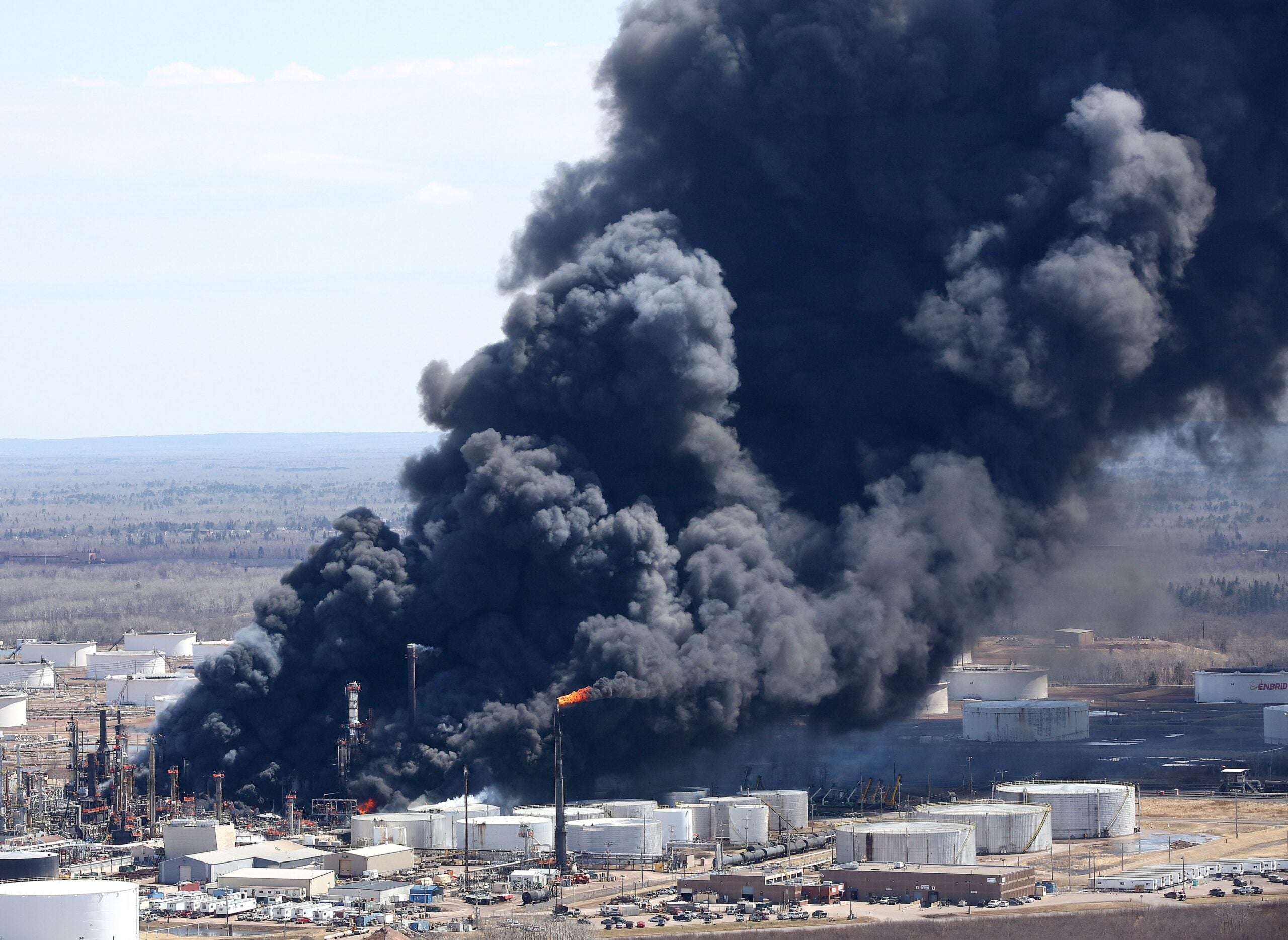
The Superior refinery is not the only facility owned by the company that’s had safety issues.
In September, a fire killed two workers at its Toledo refinery. The facility is jointly owned by BP and Cenovus, but BP agreed in August to sell its 50 percent stake in the plant to Cenovus. That deal has yet to close, and BP still owns half the facility. A recent update on the Toledo incident from the Chemical Safety Board said it’s examining valves and piping of a fuel gas mix drum that may have released a flammable hydrocarbon mix.
Last year, another fire at the company’s Lima refinery injured four workers as the company was performing a turnaround.
“Our priority for the U.S. refining business is establishing a solid track record of safe and reliable performance,” said Alex Pourbaix, president and CEO of Cenovus.
According to Cenovus, the rate of injuries and safety incidents for Cenovus and Husky have been trending downward over the last five years.
While the Chemical Safety Board has yet to release its findings, the agency has previously said a worn valve is believed to have caused the Superior refinery explosion. The agency tasked with investigating chemical incidents and providing safety recommendations is contending with a backlog of investigations and understaffing.
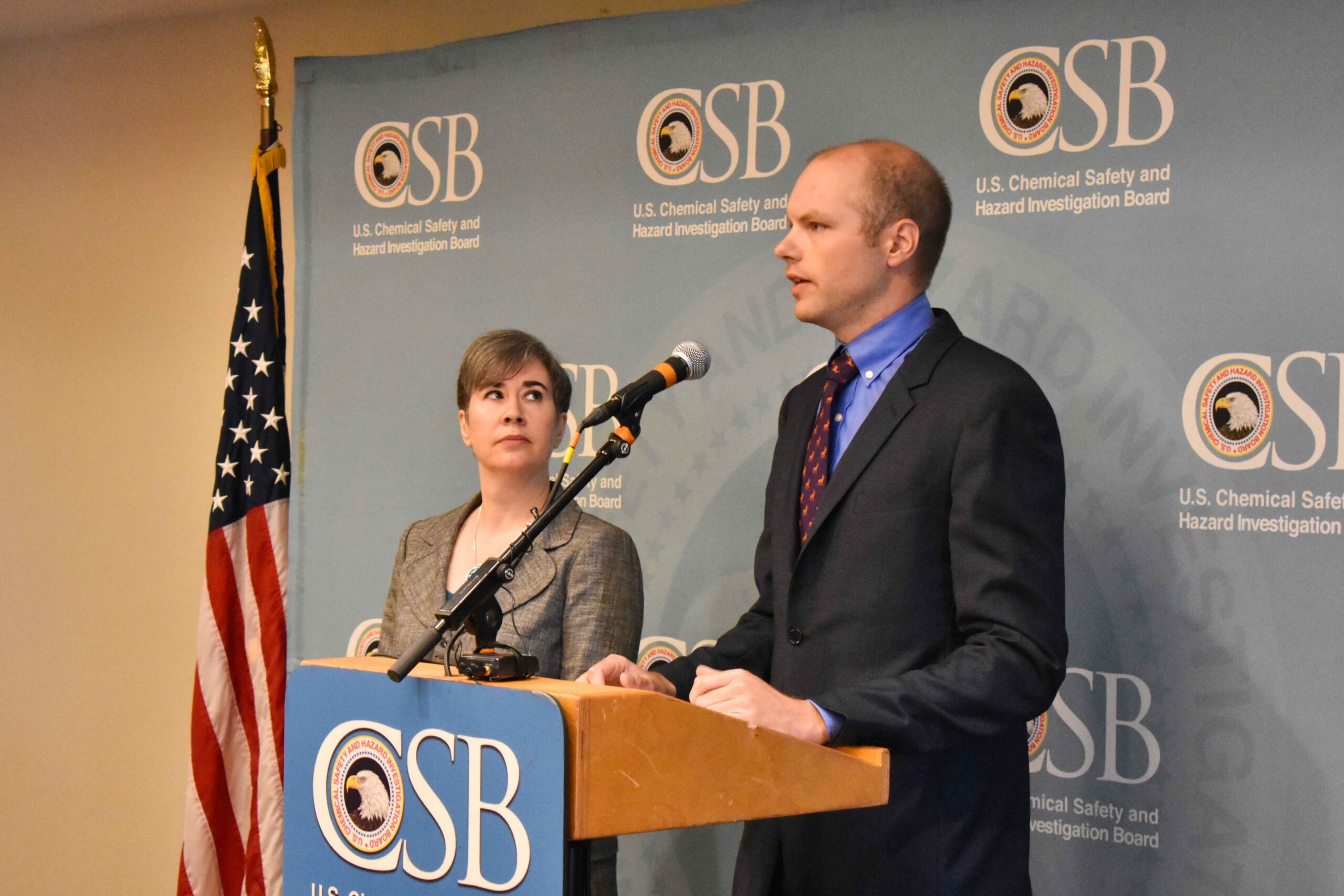
Elle McMahon/WPR
A September report from the U.S. Environmental Protection Agency’s Office of Inspector General found the board had a backlog of 17 investigations as of June 30 — nearly double its backlog four years ago. The average time to complete an investigation is almost two years, but Superior residents have waited twice as long for answers on the Husky refinery.
Cenvous has said it’s addressed all recommendations from the U.S. Occupational Safety and Health Administration to improve safety, which include updates to training and operations. The company said it’s installed new crude oil units that have new state-of-the-art valves. Cenovus is also adding more water cannons and a rapid acid transfer system that would transfer hydrogen fluoride to a separate holding tank in the event of a release.
Insurance proceeds are expected to cover much of the cost to rebuild the refinery, which has received around $201 million in insurance payments so far this year. Cenovus is spending up to $407 million on remaining work.
Cenovus has had limited production at U.S. refineries due to the Superior shut down and fatal fire at the Toledo refinery. The Superior refinery processes heavy and light crude oil, as well as produces gas, diesel and asphalt.
Despite those shutdowns, the company reported profits had tripled to $1.2 billion in the third quarter of this year — up from roughly $408 million a year ago. Global supply constraints due to Russia’s invasion of Ukraine have led to surging oil and gas prices, translating to big profits for oil companies.
The refinery typically employs around 200 workers year-round at the Superior refinery with an annual payroll of $27 million. When it restarts, the facility has the capacity to process up to nearly 50,000 barrels per day.
Wisconsin Public Radio, © Copyright 2025, Board of Regents of the University of Wisconsin System and Wisconsin Educational Communications Board.

